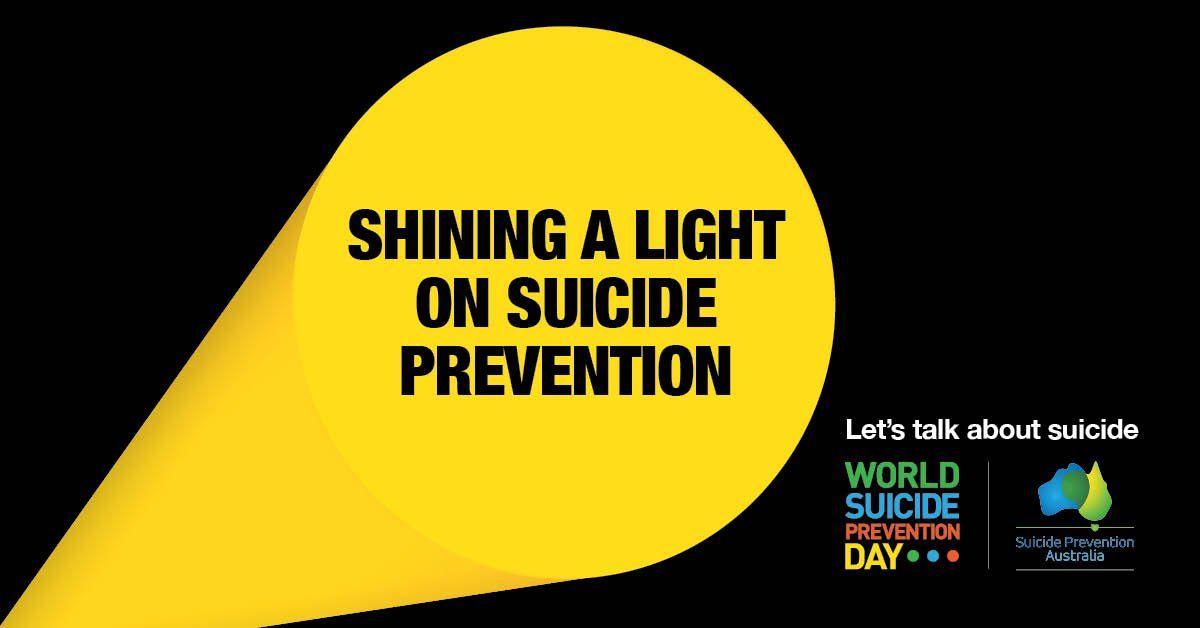Shining a light on the signs that someone may be at risk of suicide
The facts:
- Approximately 8 people die by suicide every day in Australia.
- Every one of these lives lost represents someone’s partner, child, parent, friend or workmate.
- For every death, it's estimated at least another 30 attempt to end their own life.
- It doesn’t discriminate. Suicide occurs across demographics.
Today, World Suicide Prevention Day, held every year on 10 September, shines a light on this issue and the role we can all play in helping to prevention suicide.
While the warning signs of suicide are sometimes subtle, learning how to identify them and raise your concerns could help change another person’s life – and you don’t have to be an expert to make a difference.
Rachel Clements is the Director of Psychological Services at the Centre for Corporate Health (CFCH) and a member of the R U OK? Conversation Think Tank. She explains the signs that someone may be at risk of suicide and how we can talk about this sensitive and important issue.
“The signs may be subtle, but it’s likely that you’ll pick up on a number of indicators that someone is struggling. As everyone is different and may respond differently to these thoughts and feelings, it’s important you trust your gut instinct when you notice a shift or change in someone and reach out to them,” Rachel said.
The non-verbal signs that indicate it’s time to reach out to someone include social withdrawal, a persistent drop in mood, disinterest in maintaining personal hygiene or appearance, uncharacteristically reckless behaviour, poor diet changes, rapid weight changes, being distracted, anger, insomnia, alcohol or drug abuse and giving away sentimental or expensive possessions.
Indirect verbal expressions include hopelessness, failing to see a future, believing they are a burden to others, saying they feel worthless or alone and talking about their death or wanting to die.
“People who have thought about suicide say the most important thing family, friends and colleagues can do is listen, show they care, and offer support,” says Rachel.
If someone says they’re thinking of suicide it’s important to
take the comment seriously and not panic.
"There are three things to keep front of mind. Firstly, people who open up
or disclose thoughts of suicide have often chosen that person very carefully.
So, if someone opens up to you it’s an indication they trust you or see
something in you that resonates with them and has enabled them to come forward.
"Secondly, if they’ve opened up it’s usually because they want help. They are already in the mindset of reaching out and wanting support, so it’s your role to be the vehicle that steers them in the right direction.
"Thirdly, it’s an invitation to step into a conversation with them, so don’t shut it down even if you’re uncomfortable,” she says.
If someone discloses thoughts of suicide, take them seriously and don’t leave the person alone. Explain that thoughts of suicide are common and that you would like to support them by connecting them with someone who can help. Ensure the person is connected with a treating practitioner such as a GP, Counsellor or Psychologist, where possible make the appointment with them. As an immediate measure connect them with the Suicide Call Back Service or Lifeline which provide crisis support.
If you think someone is at immediate risk call 000 and ask for an ambulance. Stay by their side whilst waiting for the ambulance to arrive.
Learn more about identifying and responding to warning signs of suicide here.
If you or a loved one need immediate support, contact Lifeline on 13 11 14 for free 24/7 telephone crisis support. Other supports can be found at www.ruok.org.au/findhelp






















